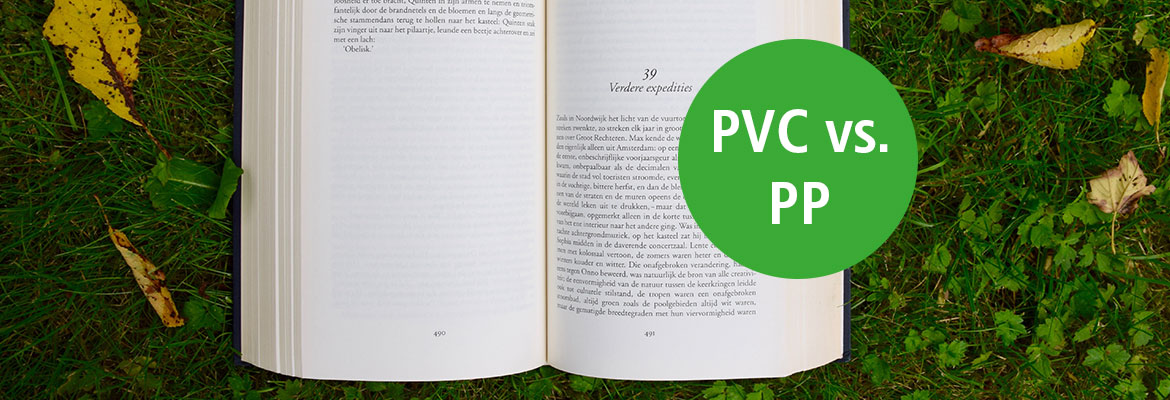Book protection: PVC vs. PP films
In many industries, products and manufacturing processess that are more sutainable are becoming more and more important. In the field of self-adhesive media, the movement towards eco-friendliness represents a major challenge. The problem is obvious: Plastic and therefore self-adhesive films are generally challenging in regards to their eco friendliness. However, it is difficult to avoid them completely in everyday life. For example in book protection films, PVC (polyvinyl chloride) has many advantages towards other materials and is easy to work with. Nevertheless, Neschen has developed many product alternatives on the basis of PP (polypropylene) instead of PVC over the years. This way, customers can choose a suitable product depending on each individual application. Additionally, Neschen works with solvent-free acrylate adhesives and ensures that all raw materials are free of harmful additives.
But what exactly is the difference between PVC and PP?
After PE (polyethylene) and PP, PVC is the third most important polymer for plastics. PVC is divided into hard and soft PVC. Many users prefer PVC films because they are softer and more elastic and therefore easier to process. PP is recognised as an eco-friendlier alternative because it is a simply structured synthetic material and also a “by-product” of the petrol industry. This resource is put to good use in the form of protecting or mounting films.

Over the years, Neschen has developed alternatives on the basis of PP for virtually every application (digital print, protection and mounting films). PP films are a little more difficult to work with because they are less flexible. Cutting through the material is also a little more difficult than cutting through the PVC version.
Nevertheless, a lot speaks for using PP films as an alternative to PVC:
- non-toxic combustion
- byproduct of the petrol industry
- does not contaminate ground water
- virtually shrink-proof
- temperature resistant up to +100°C (212°F)
Order free samples of our book protection films today!
[contact-form-7 404 "Not Found"]

